In the Indian financial market, Retail Funds are a key category of mutual funds designed specifically for individual or retail investors. These funds provide smaller investors with the ability to pool their money together to invest in a diversified portfolio, which might otherwise be out of reach if investing independently. Retail Funds cater to a broad range of financial goals and are structured to meet the varying risk tolerances, time horizons, and financial goals of individuals.
Understanding Retail Funds
A Retail Fund is essentially a mutual fund designed for individual investors rather than institutions. Unlike institutional funds, which cater to large corporations and high-net-worth individuals, retail funds aim to make investing accessible for the average investor. They often require lower minimum investments and are regulated to ensure transparency and protection for retail investors.
Retail Funds are typically diversified across different asset classes such as equities, bonds, and money market instruments, offering retail investors a safer and more balanced exposure to the financial markets.
Key Features of Retail Funds
- Accessibility: Low minimum investment amounts make them accessible.
- Diverse Investment Options: Can include equity, debt, or balanced portfolios.
- Regulatory Safeguards: Structured to protect smaller investors with strict regulations.
- Managed by Professionals: Experienced fund managers handle investments.
| Feature | Description |
|---|---|
| Investment Minimum | Low, making it accessible for individual investors |
| Portfolio Type | Equity, Debt, Balanced, or Sector-specific funds |
| Liquidity | Often high, allowing for easy purchase and redemption of shares |
| Regulation | Regulated by SEBI (Securities and Exchange Board of India) for transparency |
Why Invest in Retail Funds?
Retail Funds offer a range of benefits that appeal to a wide array of investors, from first-time investors to experienced individuals. Here are some of the primary reasons to consider these funds:
- Low Investment Threshold: Many Retail Funds have low entry points, making them ideal for new investors.
- Professional Management: Fund managers actively manage investments, optimizing performance.
- Diverse Asset Allocation: Enables risk reduction by spreading investments across asset classes.
- Liquidity: Retail Funds can generally be easily bought and sold.
Types of Retail Funds in India
In the Indian mutual fund landscape, Retail Funds are categorized into various types, each suited for different financial goals and risk profiles. Below are the common types:
- Equity Retail Funds: Invest primarily in stocks.
- Best suited for long-term capital growth.
- Debt Retail Funds: Focus on fixed-income securities.
- Suitable for income-focused, lower-risk investors.
- Hybrid Retail Funds: Combine equities and debt.
- Ideal for those seeking balanced growth and income.
- Sector-Specific Retail Funds: Target specific sectors like technology or pharmaceuticals.
- Best for investors with a higher risk tolerance who believe in a particular industry.
Historical Performance of Retail Funds in India
Retail Funds in India have shown varied performance based on market conditions, regulatory changes, and economic growth. Below is an overview of the historical performance data of equity and debt-focused retail funds.
Historical Performance Data (2018 – 2023)
| Year | Equity Retail Funds (%) | Debt Retail Funds (%) |
|---|---|---|
| 2018 | 12.1 | 7.3 |
| 2019 | 10.8 | 8.5 |
| 2020 | -6.9 | 6.2 |
| 2021 | 17.5 | 6.8 |
| 2022 | 13.2 | 7.1 |
| 2023 | 15.4 | 7.6 |
Benefits of Retail Funds
Retail Funds come with numerous benefits that make them a popular investment choice for individual investors. Some of these benefits include:
- Cost Efficiency: Low investment minimums make it affordable.
- Regulated for Safety: Governed by SEBI for transparency and security.
- Access to Diverse Markets: Retail investors can access global and sector-specific investments.
- Potential for Higher Returns: Well-suited for long-term growth, especially equity-based funds.
Risks of Investing in Retail Funds
Like any investment, Retail Funds also come with inherent risks that investors need to consider:
- Market Risk: Equity retail funds are directly affected by market volatility.
- Interest Rate Risk: Debt funds may suffer during rising interest rate periods.
- Credit Risk: Debt retail funds might face defaults or downgrades in the underlying securities.
- Management Risk: Fund performance depends on the decisions of the fund manager.
Retail Funds vs. Institutional Funds
To better understand Retail Funds, let’s compare them with Institutional Funds, which are designed for large-scale investors.
| Parameter | Retail Funds | Institutional Funds |
|---|---|---|
| Minimum Investment | Low, accessible to individual investors | High, catering to large investors |
| Regulatory Oversight | High, with focus on protecting retail investors | Moderate |
| Portfolio Management | More diversified for safety | Often specialized for high returns |
| Suitable For | Individual investors | Corporations, large entities |
Popular Retail Funds in India
Here is a look at some of the popular Retail Funds in India that have shown consistent performance over the years:
| Fund Name | Asset Focus | 5-Year CAGR (%) |
|---|---|---|
| ABC Equity Retail Fund | Equity | 13.4 |
| XYZ Balanced Retail Fund | Hybrid | 11.2 |
| DEF Debt Retail Fund | Debt | 7.6 |
| GHI Sector Retail Fund | Sector | 15.8 |
Investment Strategies for Retail Funds
To maximize returns, retail investors can adopt various strategies when investing in Retail Funds:
- Goal-Based Investing: Align fund choices with financial goals, such as retirement or education.
- Risk Diversification: Use a combination of equity, debt, and hybrid funds to balance risks.
- Systematic Investment Plan (SIP): Invest a fixed amount monthly to average out the purchase cost.
- Long-Term Focus: Retail investors typically benefit more from holding Retail Funds over longer periods, especially equity funds.
Historical Trends and Economic Impact of Retail Funds
Retail Funds have increasingly grown in popularity among Indian investors over the past decade. Analyzing the historical growth patterns of these funds gives insights into their economic impact.
Case Study: Equity Retail Funds Growth (2015 – 2023)
| Year | Equity Retail Fund Growth (%) | Sensex Growth (%) |
|---|---|---|
| 2015 | 7.6 | 5.3 |
| 2016 | 10.4 | 8.6 |
| 2017 | 15.7 | 12.2 |
| 2018 | 12.1 | 10.1 |
| 2019 | 10.8 | 9.0 |
| 2020 | -6.9 | -8.5 |
| 2021 | 17.5 | 15.4 |
| 2022 | 13.2 | 11.3 |
| 2023 | 15.4 | 13.7 |
This data indicates that Retail Funds have often outperformed the general market, making them an attractive option for individual investors looking for long-term growth.
Tax Implications of Retail Funds in India
Retail Funds in India are subject to taxation based on the type of fund and the investment duration:
- Equity Funds:
- Short-Term Capital Gains (STCG): Taxed at 15% if sold within a year.
- Long-Term Capital Gains (LTCG): Taxed at 10% for gains exceeding INR 1 lakh if held over a year.
- Debt Funds:
- Short-Term Capital Gains (STCG): Taxed at the individual’s applicable income tax rate.
- Long-Term Capital Gains (LTCG): Taxed at 20% with indexation benefits if held for over three years.
Conclusion
Retail Funds offer a convenient, cost-effective way for individual investors to access the Indian financial markets, catering to a variety of investment goals and risk preferences. With professional management, diverse investment options, and robust regulatory oversight, they make investing accessible and practical for the retail segment. By aligning with financial goals and following disciplined investment strategies, retail investors can leverage these funds for long-term financial growth and stability.

What are Dividend Yield Mutual Funds?
Dividend yield mutual funds are designed for investors seeking a steady income source from their …

What Is Children’s Mutual Fund?
Children’s mutual funds are specially designed to help parents and guardians build a secure financial …

What are Alpha and Beta in Mutual Funds?
In mutual fund investing, understanding performance metrics like Alpha and Beta is essential for assessing …

Sovereign Gold Bonds vs Mutual Funds
For Indian investors seeking diverse investment opportunities, both Sovereign Gold Bonds (SGB) and mutual funds …

What Is Risk-Return Trade-Off in Mutual Funds?
In mutual fund investments, the risk-return trade-off is a fundamental concept that helps investors balance …

What is a Mutual Fund Manager?
A mutual fund manager plays a crucial role in the success of a mutual fund, …

Debt vs Equity Funds
Investing in mutual funds offers various avenues, with debt and equity funds standing out as …

What are the Different Types of Index Funds?
Index funds have gained popularity among Indian investors for offering a low-cost, diversified approach to …

What is CAMS KRA?
CAMS KRA (Computer Age Management Services KYC Registration Agency) is a crucial player in India’s …

What is Yield to Maturity?
Yield to Maturity (YTM) is a crucial concept in fixed-income investments, especially in mutual funds …

What are Thematic Funds?
In the Indian share market, Thematic Funds have gained popularity as specialized mutual funds tailored …
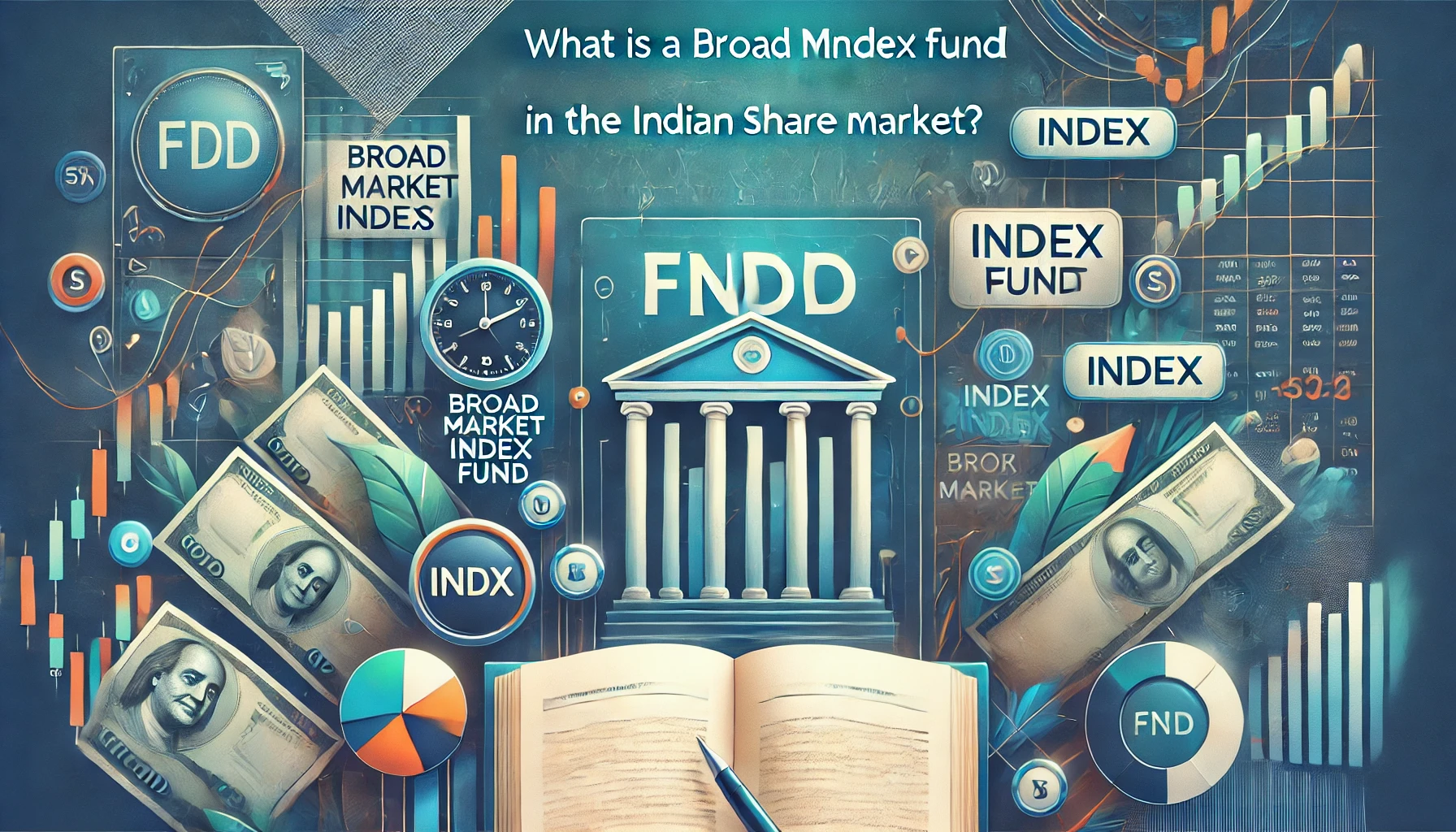
What is Broad Market Index Fund?
In the Indian share market, Broad Market Index Funds offer a straightforward, cost-effective way for …

What are Retail Fund?
In the Indian financial market, Retail Funds are a key category of mutual funds designed …

What is Regional Fund?
In the evolving landscape of the Indian financial market, Regional Funds have emerged as a …
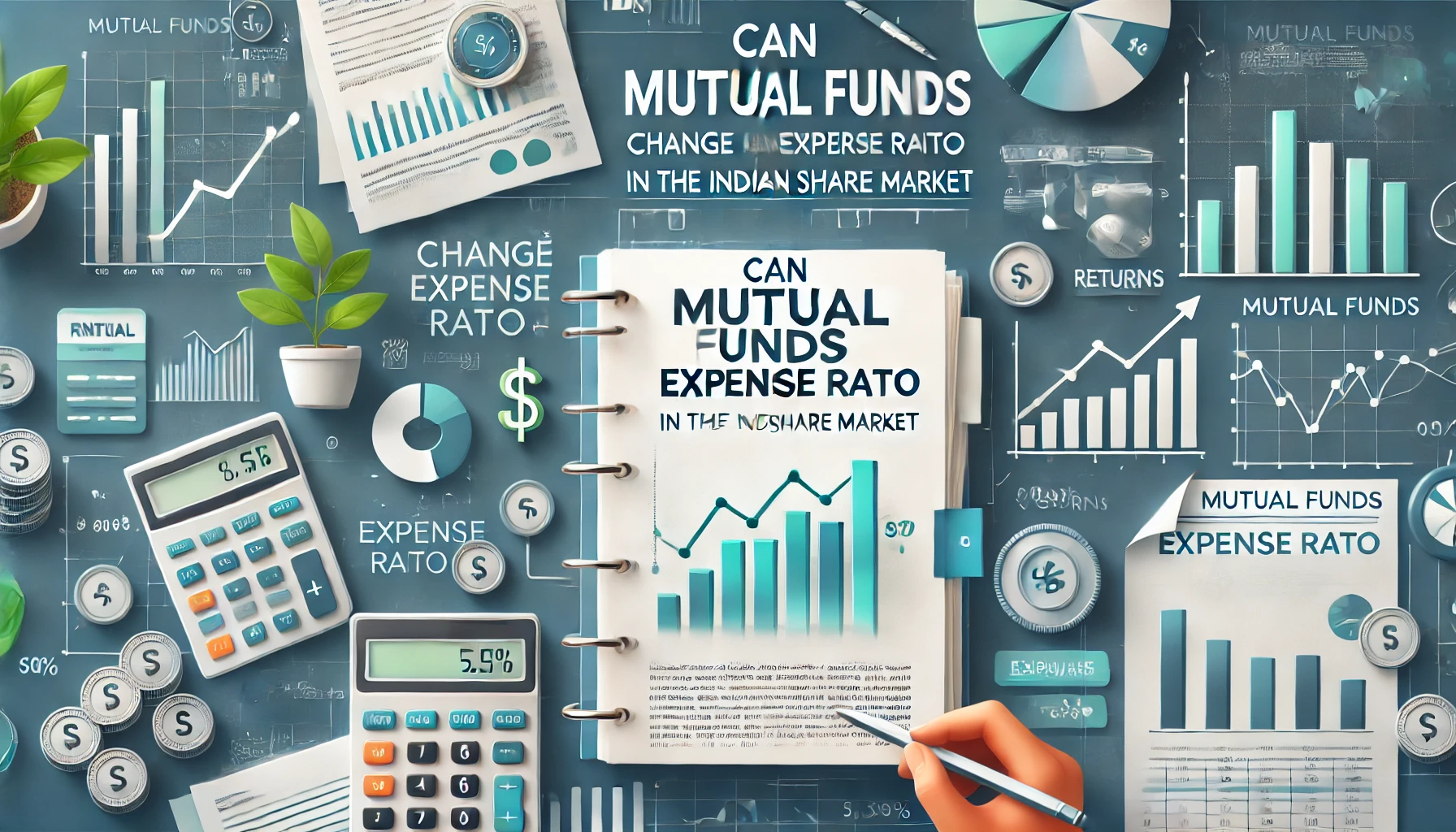
Can Mutual Funds Change Expense Ratio?
Investing in mutual funds involves paying various fees, one of the most important being the …

What is the Inverted Yield Curve?
In financial markets, the yield curve is a key indicator that investors and economists use …

What are Dynamic Asset Allocation Funds?
Dynamic asset allocation funds, also known as balanced advantage funds, are becoming increasingly popular in …
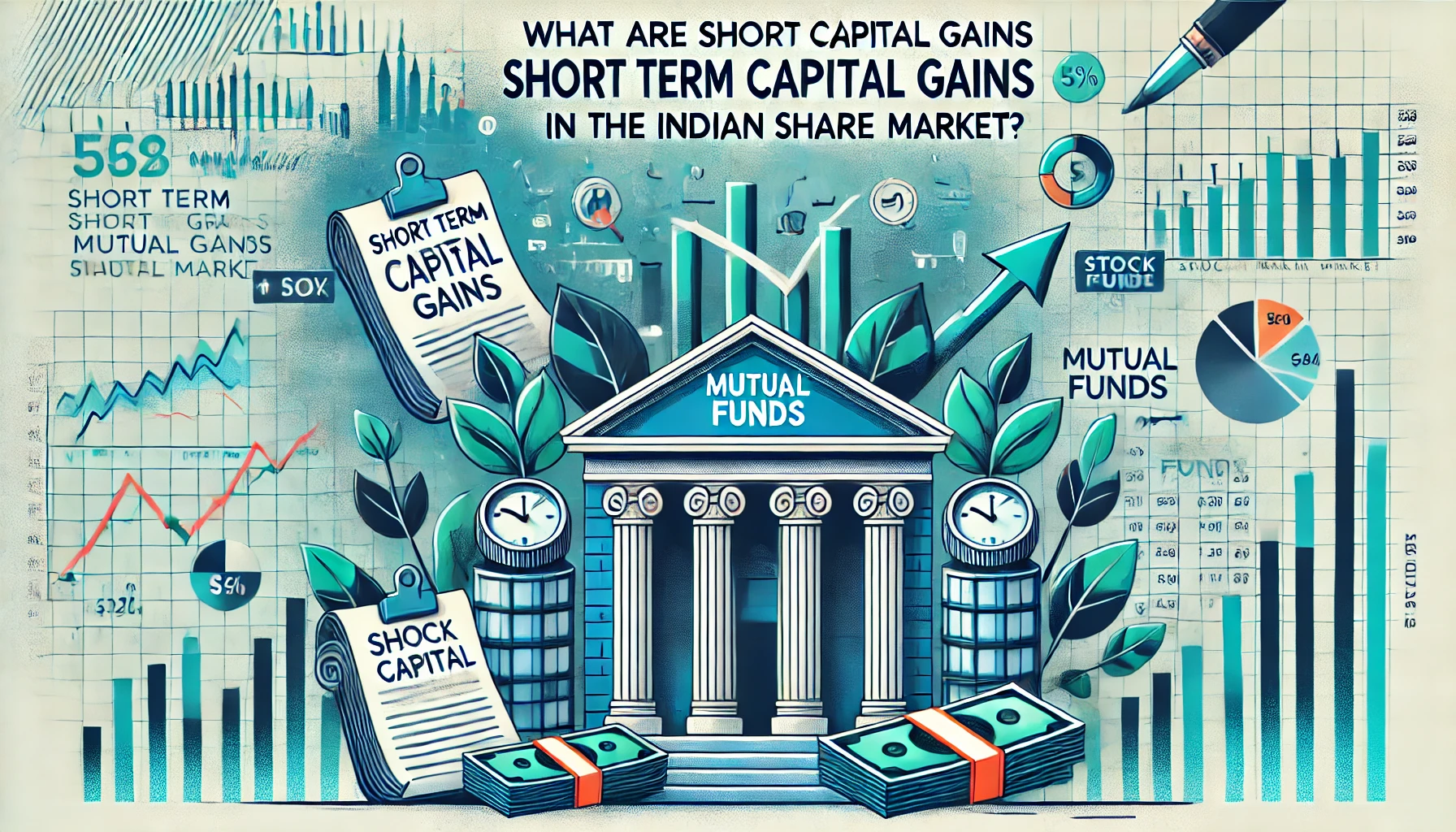
What are Short Term Capital Gains on Mutual Funds?
Investing in mutual funds has become an increasingly popular way for investors to diversify their …

What are Corporate Bond Funds?
Corporate bond funds are a type of debt mutual fund that invests primarily in high-rated …

What Are Money Market Funds?
Money Market Funds (MMFs) are a type of mutual fund that invests in short-term debt …

What is a Fund of Funds?
A Fund of Funds (FoF) is a mutual fund that invests in other mutual funds …

What is a Credit Risk Fund?
A credit risk fund is a type of debt mutual fund that primarily invests in …

What are Gold Funds?
Gold funds are a type of mutual fund that invests in gold-related assets, including gold …
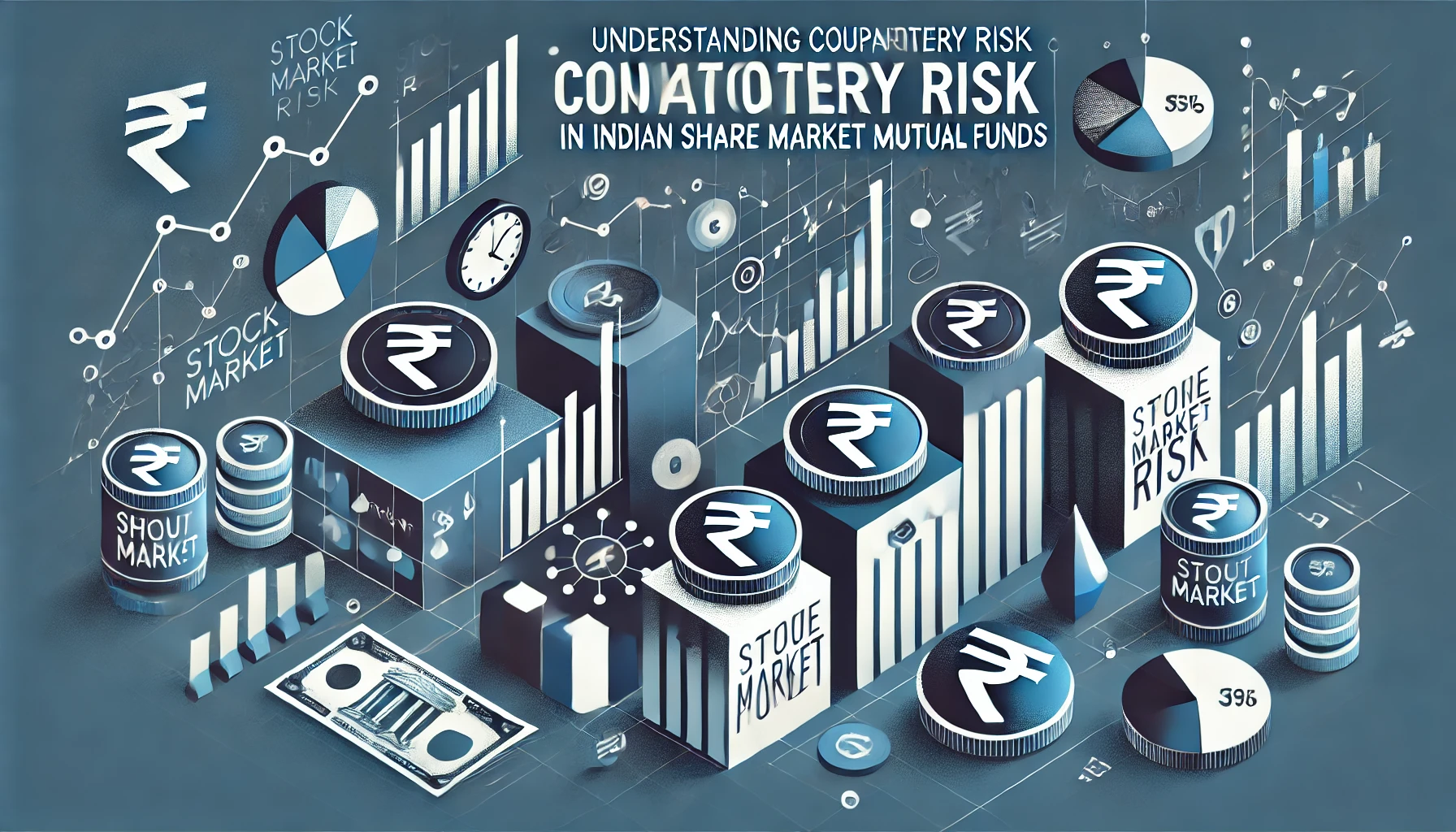
What is Counterparty Risk?
In the world of investments, especially in Indian share market mutual funds, the concept of …

What is a sinking fund?
In the world of finance and investments, planning ahead for future liabilities is crucial for …
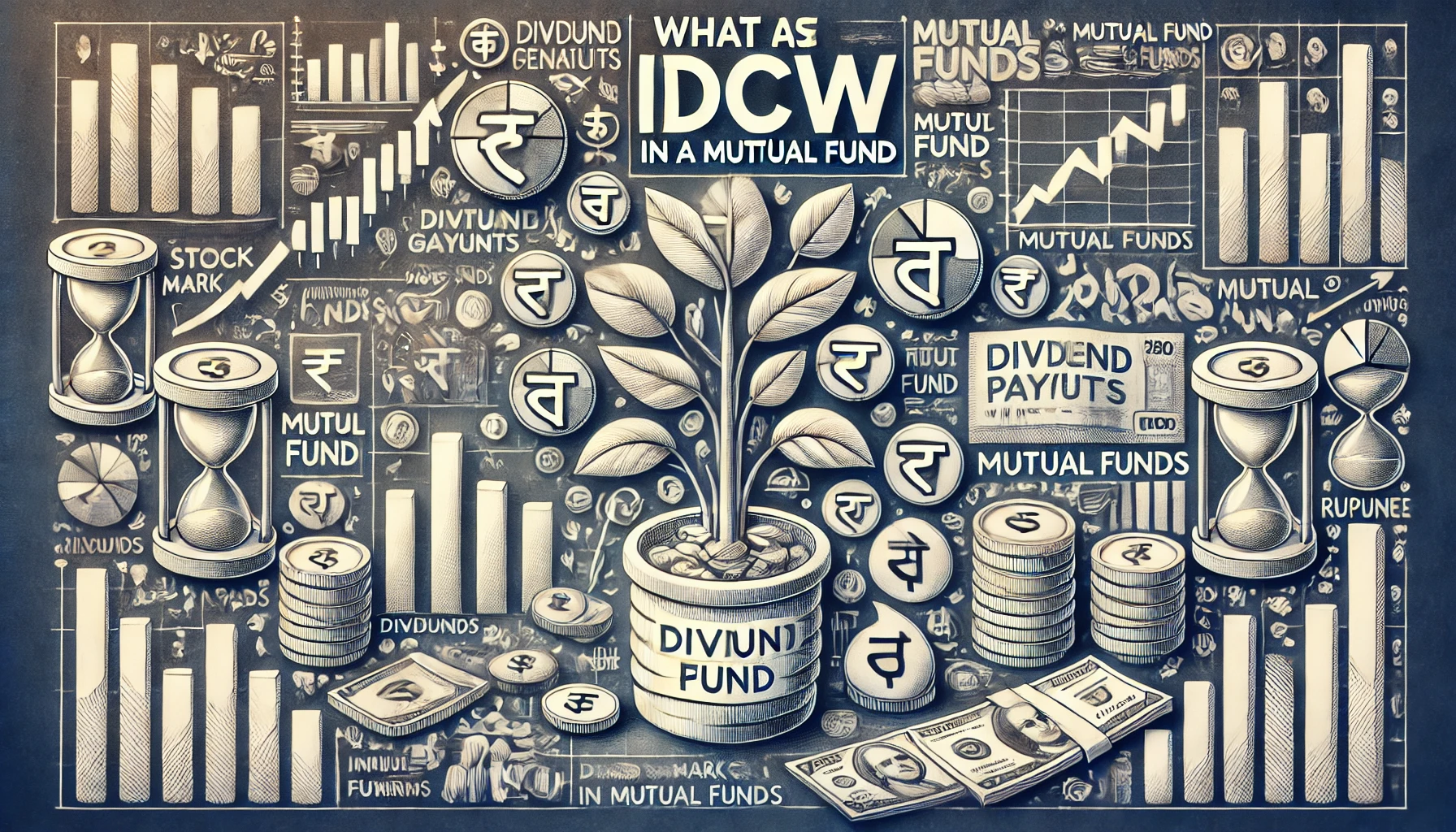
What is IDCW in a Mutual Fund?
Investing in mutual funds offers several options for investors looking to grow their wealth over …

What are growth funds?
Growth funds are a type of mutual fund that primarily focuses on capital appreciation by …

CAGR vs Absolute Returns
When investing in mutual funds, understanding your returns is essential to make informed decisions. Two …

What is a Capital Protection Fund?
A Capital Protection Fund (CPF) is a type of hybrid mutual fund designed to safeguard …

What Is Rupee Cost Averaging in Sip?
Rupee Cost Averaging (RCA) is a systematic investment strategy used in mutual fund investments, particularly …
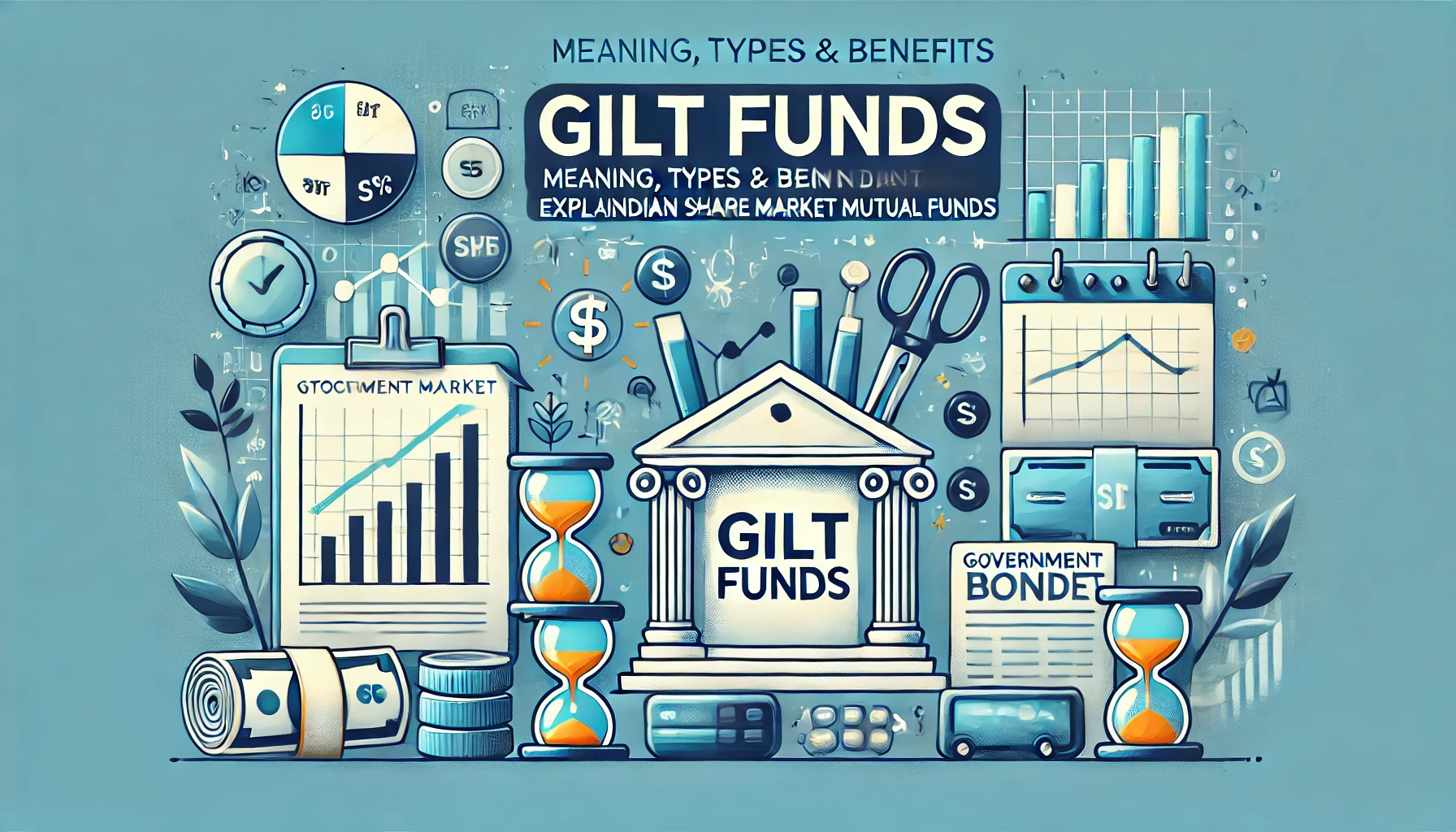
What are Gilt Funds
Investing in mutual funds can be an excellent way to grow your wealth while managing …
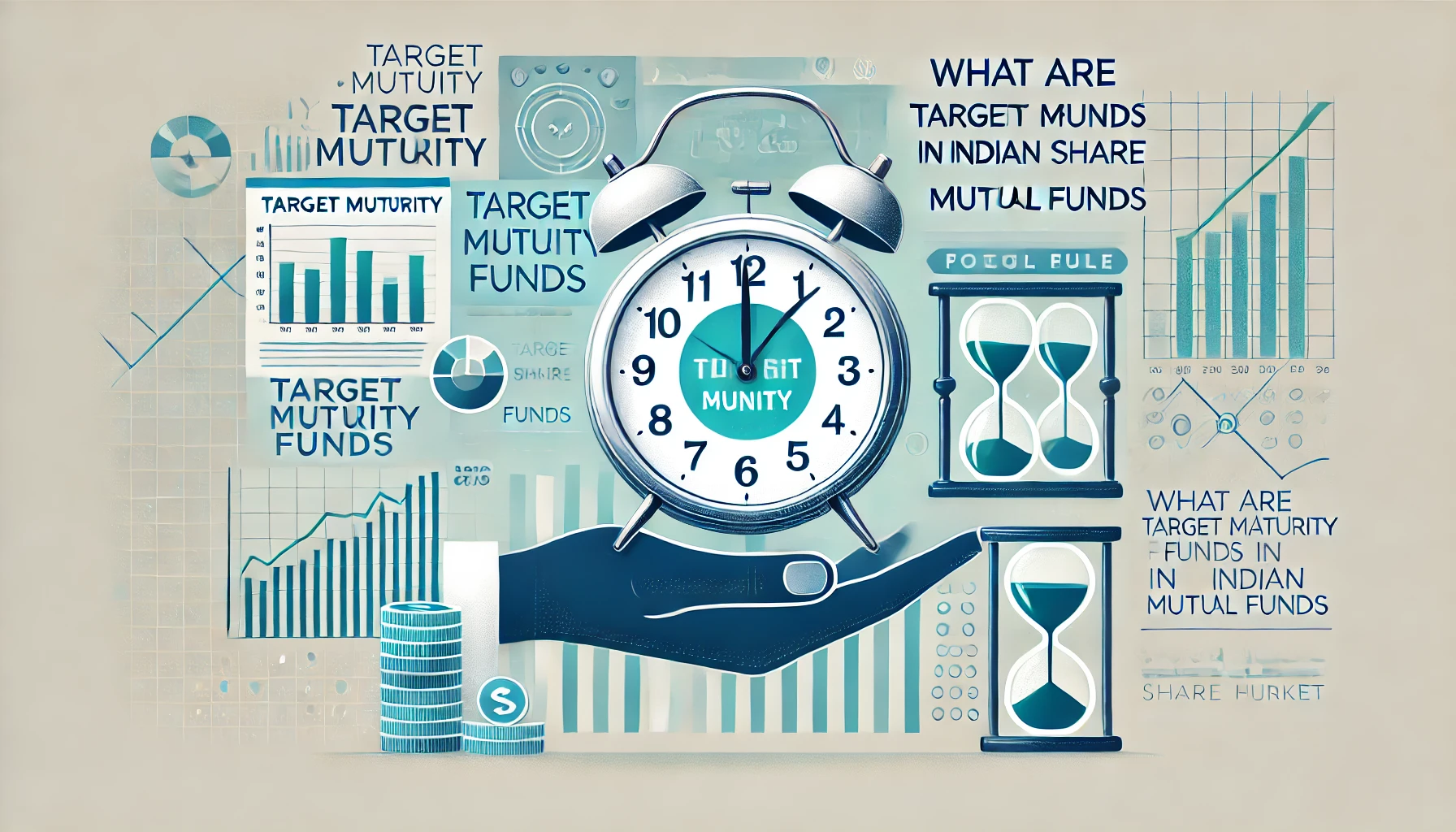
What is Target Maturity Funds?
Target Maturity Funds (TMFs) have gained attention in the Indian share market, offering a unique …

What is KIM?
When investing in Indian mutual funds, investors often come across a document known as the …

Trailing Returns vs Rolling Returns
When analyzing mutual fund performance, understanding returns is crucial for making informed investment decisions. Two …

What is Hybrid Mutual Fund?
When investing in mutual funds, you typically aim to find the right balance between risk …
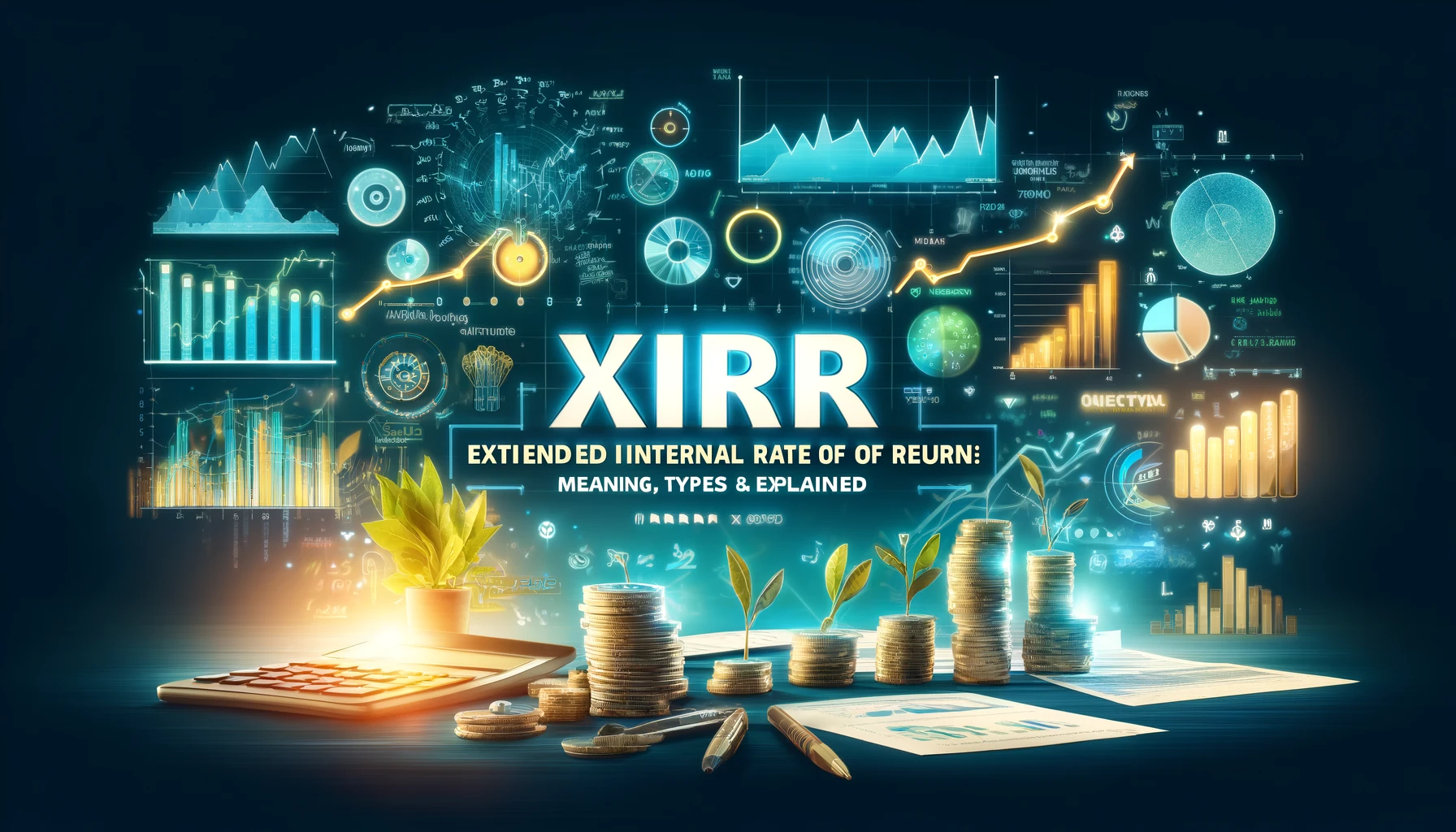
What is XIRR?
Investing in mutual funds is a popular choice for many investors in India, thanks to …

What is the Sharpe ratio?
In the world of mutual fund investing, one of the most crucial aspects to consider …

What is AMFI?
The Indian mutual funds industry has grown exponentially over the past two decades. This growth …

What is Rolling Returns?
Investing in mutual funds requires understanding various performance metrics to make informed decisions. One such …



















